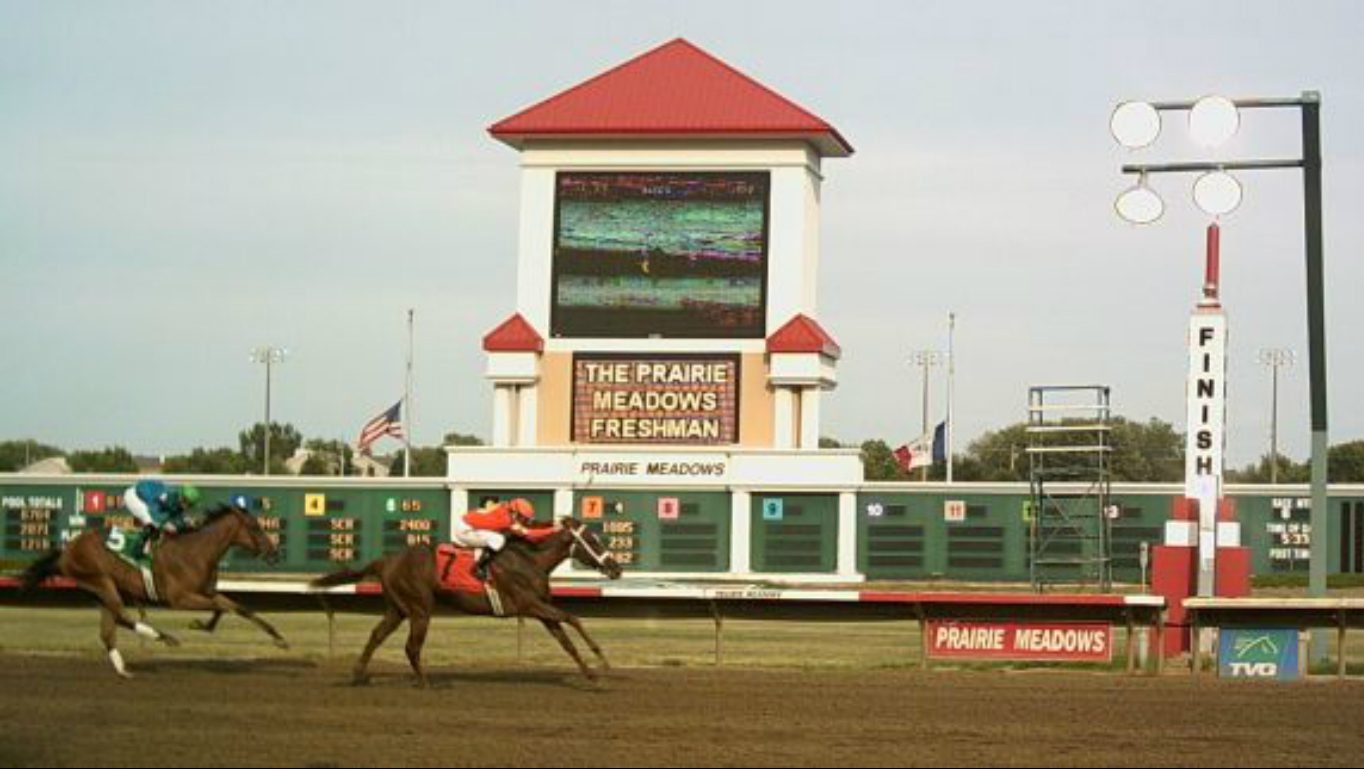Special Report
States Spending the Most (and Least) on Gambling

Published:
Last Updated:

Taking risks is at the heart of the entrepreneurial spirit that is often associated with the American way of life. While not exactly entrepreneurial, perhaps nowhere is risk-taking more apparent than across the U.S. gaming sector. In a given year, state governments together generate nearly $63 billion in revenue from casinos and lotteries. This revenue comprises close to 4% of all state government tax revenue.
Of course, not all state governments support the gaming industry, and Americans spend far more on such games in some states than in others. To identify the states where residents spend the most and least on gambling, 24/7 Wall St. reviewed the latest casino revenue data from the American Gaming Association as well as state lottery revenue tracked by the U.S. Census Bureau.
Nevada is the most popular gaming destination in the country with more casinos in operation than the rest of the states combined. Annual revenue from gambling amounts to $5,000 for every resident 18 and over in Nevada, far and away the highest gambling expenditure by residents of all states. In Alabama, Alaska, Hawaii, Utah, and Wyoming, adult residents spend no money on sanctioned gambling.
Click here to see the states spending the most (and least) on gambling.
There are plenty of opportunities to gamble in almost every state. Just under half of all states allow casinos, and 43 states participate in the lottery. Americans purchased $64.6 billion worth of lottery tickets in 2014. Of that expenditure, $40.3 billion was returned in winnings. This means approximately $100 is spent every year on losing lottery tickets for every American over 18.
Alabama, Mississippi, and Utah do not participate in the lottery, citing religious reasons. Alaska opts out for economic reasons. Attempts to introduce commercial gambling to Hawaii have failed to find support in the legislature. Lottery tickets are not sold in Nevada due to the competition it would pose to the nation’s largest casino industry.
Lotteries and casinos almost always generate massive sums for state coffers. Proponents of state gaming industries point to the millions of dollars that flow from gaming revenues to education budgets, environmental protection initiatives, and other social programs.
Opponents of gambling, by contrast, point to these high revenues not as signs of success but as precisely the problem. According to advocacy group Stop Predatory Gambling, the lottery and casino games tend to attract low-income individuals, retirees, and the disabled.
To determine the states where residents spend the most on gambling, 24/7 Wall St. combined casino and lottery revenue per adult in every state. 2015 consumer spending in commercial casinos comes from the most recent State of the States report from the American Gaming Association. The AGA defines commercial casinos as privately owned and licensed by the state. Included are land-based, riverboat, dockside, and racetrack casinos. Because comprehensive data are not available, tribal casinos are excluded.
2014 lottery spending is from the U.S. Census Bureau and is the difference between total lottery income and prizes paid to players. Because total state tax revenues are available only through 2014, to calculate the share of total state tax revenue that comes from gambling, 2014 spending data from the AGA were used instead of 2015 for the calculation. Population estimates are also from the U.S. Census Bureau and are for 2015.
These are the states spending the most (and least) on gambling.

50. Wyoming
> Total spending per adult: $0
> Lottery spending per adult: $0
> Casino spending per adult: $0
> State tax revenue from gambling: 0.0%
[in-text-ad]

49. Utah
> Total spending per adult: $0
> Lottery spending per adult: $0
> Casino spending per adult: $0
> State tax revenue from gambling: 0.0%

48. Hawaii
> Total spending per adult: $0
> Lottery spending per adult: $0
> Casino spending per adult: $0
> State tax revenue from gambling: 0.0%

47. Alaska
> Total spending per adult: $0
> Lottery spending per adult: $0
> Casino spending per adult: $0
> State tax revenue from gambling: 0.0%
[in-text-ad-2]

46. Alabama
> Total spending per adult: $0
> Lottery spending per adult: $0
> Casino spending per adult: $0
> State tax revenue from gambling: 0.0%

45. North Dakota
> Total spending per adult: $20
> Lottery spending per adult: $20
> Casino spending per adult: $0
> State tax revenue from gambling: 0.2%
[in-text-ad]

44. Montana
> Total spending per adult: $33
> Lottery spending per adult: $33
> Casino spending per adult: $0
> State tax revenue from gambling: 1.0%

43. Minnesota
> Total spending per adult: $37
> Lottery spending per adult: $37
> Casino spending per adult: $0
> State tax revenue from gambling: 0.7%

42. Nebraska
> Total spending per adult: $39
> Lottery spending per adult: $39
> Casino spending per adult: $0
> State tax revenue from gambling: 1.1%
[in-text-ad-2]

41. Arizona
> Total spending per adult: $42
> Lottery spending per adult: $42
> Casino spending per adult: $0
> State tax revenue from gambling: 1.7%

40. Washington
> Total spending per adult: $47
> Lottery spending per adult: $47
> Casino spending per adult: $0
> State tax revenue from gambling: 1.3%
[in-text-ad]

39. Idaho
> Total spending per adult: $49
> Lottery spending per adult: $49
> Casino spending per adult: $0
> State tax revenue from gambling: 1.6%

38. Arkansas
> Total spending per adult: $49
> Lottery spending per adult: $49
> Casino spending per adult: $0
> State tax revenue from gambling: 1.3%

37. Wisconsin
> Total spending per adult: $52
> Lottery spending per adult: $52
> Casino spending per adult: $0
> State tax revenue from gambling: 1.4%
[in-text-ad-2]

36. Vermont
> Total spending per adult: $62
> Lottery spending per adult: $62
> Casino spending per adult: $0
> State tax revenue from gambling: 1.1%

35. California
> Total spending per adult: $65
> Lottery spending per adult: $65
> Casino spending per adult: $0
> State tax revenue from gambling: 1.4%
[in-text-ad]

34. Texas
> Total spending per adult: $69
> Lottery spending per adult: $69
> Casino spending per adult: $0
> State tax revenue from gambling: 2.5%

33. Oklahoma
> Total spending per adult: $70
> Lottery spending per adult: $32
> Casino spending per adult: $38
> State tax revenue from gambling: 1.3%

32. North Carolina
> Total spending per adult: $74
> Lottery spending per adult: $74
> Casino spending per adult: $0
> State tax revenue from gambling: 2.5%
[in-text-ad-2]

31. Kentucky
> Total spending per adult: $78
> Lottery spending per adult: $78
> Casino spending per adult: $0
> State tax revenue from gambling: 2.4%

30. New Hampshire
> Total spending per adult: $83
> Lottery spending per adult: $83
> Casino spending per adult: $0
> State tax revenue from gambling: 3.9%
[in-text-ad]

29. South Carolina
> Total spending per adult: $96
> Lottery spending per adult: $96
> Casino spending per adult: $0
> State tax revenue from gambling: 4.1%

28. Virginia
> Total spending per adult: $96
> Lottery spending per adult: $96
> Casino spending per adult: $0
> State tax revenue from gambling: 3.3%

27. Tennessee
> Total spending per adult: $112
> Lottery spending per adult: $112
> Casino spending per adult: $0
> State tax revenue from gambling: 4.8%
[in-text-ad-2]

26. Florida
> Total spending per adult: $134
> Lottery spending per adult: $102
> Casino spending per adult: $33
> State tax revenue from gambling: 5.2%

25. Connecticut
> Total spending per adult: $135
> Lottery spending per adult: $135
> Casino spending per adult: $0
> State tax revenue from gambling: 2.4%
[in-text-ad]

24. Georgia
> Total spending per adult: $143
> Lottery spending per adult: $143
> Casino spending per adult: $0
> State tax revenue from gambling: 5.9%

23. Maine
> Total spending per adult: $183
> Lottery spending per adult: $62
> Casino spending per adult: $121
> State tax revenue from gambling: 3.1%

22. New Mexico
> Total spending per adult: $201
> Lottery spending per adult: $39
> Casino spending per adult: $162
> State tax revenue from gambling: 2.2%
[in-text-ad-2]

21. Oregon
> Total spending per adult: $203
> Lottery spending per adult: $203
> Casino spending per adult: $0
> State tax revenue from gambling: 6.6%

20. Kansas
> Total spending per adult: $210
> Lottery spending per adult: $42
> Casino spending per adult: $168
> State tax revenue from gambling: 2.5%
[in-text-ad]

19. Colorado
> Total spending per adult: $228
> Lottery spending per adult: $40
> Casino spending per adult: $188
> State tax revenue from gambling: 2.3%

18. Illinois
> Total spending per adult: $251
> Lottery spending per adult: $106
> Casino spending per adult: $145
> State tax revenue from gambling: 3.9%

17. Massachusetts
> Total spending per adult: $264
> Lottery spending per adult: $248
> Casino spending per adult: $16
> State tax revenue from gambling: 5.3%
[in-text-ad-2]

16. Michigan
> Total spending per adult: $280
> Lottery spending per adult: $101
> Casino spending per adult: $178
> State tax revenue from gambling: 4.4%

15. Ohio
> Total spending per adult: $280
> Lottery spending per adult: $97
> Casino spending per adult: $183
> State tax revenue from gambling: 5.0%
[in-text-ad]

14. South Dakota
> Total spending per adult: $340
> Lottery spending per adult: $173
> Casino spending per adult: $167
> State tax revenue from gambling: 8.0%

13. New York
> Total spending per adult: $352
> Lottery spending per adult: $226
> Casino spending per adult: $125
> State tax revenue from gambling: 5.7%

12. Pennsylvania
> Total spending per adult: $428
> Lottery spending per adult: $114
> Casino spending per adult: $314
> State tax revenue from gambling: 7.3%
[in-text-ad-2]

11. Missouri
> Total spending per adult: $442
> Lottery spending per adult: $79
> Casino spending per adult: $363
> State tax revenue from gambling: 7.2%

10. Maryland
> Total spending per adult: $447
> Lottery spending per adult: $211
> Casino spending per adult: $236
> State tax revenue from gambling: 7.4%
[in-text-ad]

9. Indiana
> Total spending per adult: $502
> Lottery spending per adult: $62
> Casino spending per adult: $440
> State tax revenue from gambling: 5.6%

8. New Jersey
> Total spending per adult: $507
> Lottery spending per adult: $139
> Casino spending per adult: $368
> State tax revenue from gambling: 4.1%

7. Iowa
> Total spending per adult: $647
> Lottery spending per adult: $53
> Casino spending per adult: $594
> State tax revenue from gambling: 5.4%
[in-text-ad-2]

6. Louisiana
> Total spending per adult: $798
> Lottery spending per adult: $52
> Casino spending per adult: $745
> State tax revenue from gambling: 8.0%

5. West Virginia
> Total spending per adult: $840
> Lottery spending per adult: $371
> Casino spending per adult: $469
> State tax revenue from gambling: 15.9%
[in-text-ad]

4. Mississippi
> Total spending per adult: $926
> Lottery spending per adult: $0
> Casino spending per adult: $926
> State tax revenue from gambling: 3.3%

3. Delaware
> Total spending per adult: $962
> Lottery spending per adult: $409
> Casino spending per adult: $554
> State tax revenue from gambling: 14.8%

2. Rhode Island
> Total spending per adult: $1,188
> Lottery spending per adult: $458
> Casino spending per adult: $730
> State tax revenue from gambling: 24.3%
[in-text-ad-2]

1. Nevada
> Total spending per adult: $4,999
> Lottery spending per adult: $0
> Casino spending per adult: $4,999
> State tax revenue from gambling: 12.3%
The last few years made people forget how much banks and CD’s can pay. Meanwhile, interest rates have spiked and many can afford to pay you much more, but most are keeping yields low and hoping you won’t notice.
But there is good news. To win qualified customers, some accounts are paying almost 10x the national average! That’s an incredible way to keep your money safe and earn more at the same time. Our top pick for high yield savings accounts includes other benefits as well. You can earn up to 3.80% with a Checking & Savings Account today Sign up and get up to $300 with direct deposit. No account fees. FDIC Insured.
Click here to see how much more you could be earning on your savings today. It takes just a few minutes to open an account to make your money work for you.
Thank you for reading! Have some feedback for us?
Contact the 24/7 Wall St. editorial team.